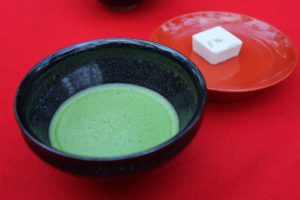Blog
2018.10.29
About transeuro
Interview with the mysterious translators of transeuro – Issue 2
We hope you enjoyed the first interview with one of our translators that we published in August. This time we interviewed Ms. Mayuko Saito the deputy manager of our translation department that has excellent skills in both English and German. Earlier this month she also held a seminar about Japanese to German patent translation that was received very well.
Which languages do you translate and what is your special field?
Japanese → German:Mechanical engineering(main)and Electrical engineering
Japanese → English:Mechanical engineering and Electrical engineering
German ⇔ English:Mechanical engineering and Electrical engineering
(I also translate non-technical corporate documents, bylaws and other documents in all language combinations.)
Please tells us more about your career before and since you joined transeuro.
Local government worker(interpreter)- 2 years and 9 months
S&E, limited, Sonderhoff & Einsel Law and Patent Office, transeuro, inc. – 13 years and 10 months
Why did you decide to become a translator?
There are several factors, but the main reason is that is a profession that works with languages. When I was a kid, I really enjoyed doing the writing assignments for school and I also started to work on my own essays after I entered high school. Therefore, I had been looking for a job where I can express myself with languages. When I got to the age where you start making concrete plans for your future, I realized that I lacked creativity. Then I could find out about the profession of translator where you work with languages based on a text someone had written. This is how and why I became a translator.
It has been two and a half years since transeuro, that originally was the translation department of a law firm, became a separate firm. Did your attitude and thoughts about translation change?
My self-attitude and -thoughts about translation did not change.
As a translator you mainly work on Japanese to German translations, what do you think are the difficulties and the charm of this language combination?
Regardless of the language, translation is challenging. Compared to translations to English, it is harder to find the correct German translation of a term as, for German, there are fewer dictionaries and reference documents. Even if you are lucky to find a term you consider as appropriate, you still cannot be sure whether it is the correct wording. When I am not sure, I consult with my coworkers, but before that, I try my best to identify the term on my own, as you forget things pretty soon when you ask someone else without making any effort beforehand.
As deputy manager of the translation department, you are in a position to assign tasks to your coworkers. Is there something that you are especially careful about?
I make sure to give my instructions at an earlier stage in order not to stop the workflow. I want to have the translators to utilize as much time as possible.
What do you think it takes to become a translator nowadays?
I think that, just like in the past, it is important that you like languages and treat them with respect. Translation is not the work just simply replacing words. It is a profession where you have to transfer the spirit of the word without any mistake. Therefore, it is sometimes even more difficult than expressing something in your own words. To become a translator, it takes curiosity, desire to improve your skills and sense of a mission to transfer the spirit of words.
What are the strengths of transeuro?
transeuro has an atmosphere that allows us to easily talk to each other to learn from each other. We have a lot of experienced members, but, instead of bragging, they casually lead you in the right direction.
You have a lot of different hobbies like, chadō (traditional Japanese tea-making procedures), rail travel and attending trial hearings. Do you think these hobbies help you increase your translation skills?
I don’t think they directly have an impact on my skills. But by having a place where you can completely be separated from your professional position, I can always come back to work with a refreshed feeling. Therefore, I think my hobbies have an indirect positive impact.
However, for me, a hobby is something where I try to achieve a level for teaching the subject. Therefore, the only activity I consider as a hobby is learning chadō , the other things are just my personal interests.

The CEO of transeuro is often talking about a “rocking!” translation company. What do you think this means?
As I enjoy a good whiskey, every time I hear “rock” I jokingly think that drinking your whiskey “on the rocks” is too soft, I prefer “straight”. Therefore I am not really sure whether I can put the “rocking” that the CEO is talking about into practice. I am sorry.
A message to the readers
I do this job because I like languages, but in my current position, I also have to deal with a lot of tasks besides translations such as review of translations made by other members. I think that, as my area of responsibility has increased, my determination regarding translation has increased as well. I am kind of in a dilemma every day. But when you do your best on your current task in hand, I believe that every experience will be helpful one day. I am happy that I feel needed in several places.
Similar Posts
[jetpack-related-posts]




Leave a Reply